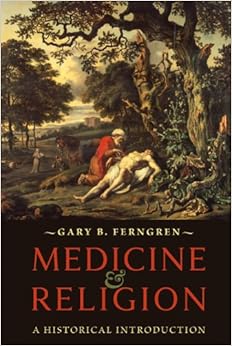 From a review of Medicine and Religion: A Historical Introduction
From a review of Medicine and Religion: A Historical Introduction
In eight well-written and thoroughly researched chapters, Ferngren takes the reader from ancient times to the Greco-Roman period, early Christianity, into the Middle Ages and the Islamic world, to the early modern period, and on into the 19th and 20th centuries. The roots of Western medicine, we learn, can be found in the transformative effects of Judeo-Christian traditions.
But the story told here is also about the eclipse of those traditions. While it is not a book on or about Darwinism, Ferngren states accurately that “Darwin’s theory did not make a significant contribution to clinical medicine.” However, he adds:
The widespread adoption by physicians of evolutionary naturalism as a world-view was a factor in divorcing medicine from traditional religious ideas and creating a new image of medicine as a scientific enterprise. Perhaps its greatest influence on medicine, however, was that it professionalized science and recast society as one that specifically privileged scientific enquiry. (p. 176)
Ferngren’s brief but insightful treatment of the rise of Darwinism and its attendant doctrine of methodological naturalism shows him to be a careful historian of ideas. One cannot help but note his phrase “evolutionary naturalism,” as opposed to merely “evolutionary theory,” as one of the significant factors contributing to the secularization of medical practice in the 19th and 20th centuries. Ferngren understands well that not all forms of evolutionary theory have been inimical to religious thought.
No indeed. The concept of “progressive revelation” is a well accepted one in theology. What was new was the “nature is all there is” stuff.
Anyway, it leaves some of us wondering what the role of evolutionary medicine is, if not to provide a stalking horse for whatever modern cause follows on the heels of eugenics (the original “evolutionary medicine” cause).